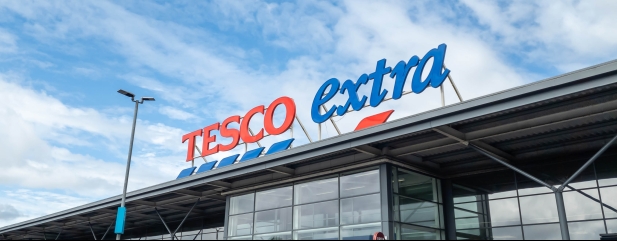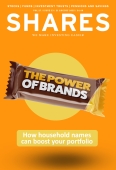Archived article
Please note that tax, investment, pension and ISA rules can change and the information and any views contained in this article may now be inaccurate.
Tesco continues to stretch its lead in UK grocery market

UK grocery sales continue to tick along nicely over the summer with the latest data from Worldpanel showing a 4.5% rise in take-home shopping in the 12 weeks to 10 August, with market leaders Sainsbury (SBRY) and Tesco (TSCO) outperforming the market.
However, in the last four weeks at least, all of the increase in value was down to higher prices rather than higher volumes, as inflation remains stubbornly high, eating into household budgets.
Over the 12 weeks to 10 August, Sainsbury’s increased its sales by 5.2% taking its share of the market to 15% while Tesco grew its sales by 7.4% giving it a 28.4% share of the market.
On a year-over year basis, Tesco raised its share by 0.8% while Sainsbury’s gave up 0.3%, but the major loser was Asda which lost 0.8% of its market share to 11.8%, leaving it just one percentage point above Aldi at 10.8% against 10% a year ago.
Asda, which was bought by private equity in 2021 and is now majority-owned by TDR Capital, has registered negative sales growth for more than a year, while Morrison, which is also owned by private equity, has underperformed the market in terms of sales growth for the last 10 months.
Meanwhile, Aldi and Lidl have outpaced the market since the start of the year and now account for 19.1% of grocery spending, up from 17.3% in December 2024, with Lidl the faster growing of the two.
Despite the ‘Big Four’ employing loyalty schemes which offer discounts and ‘Aldi price match’ campaigns across a broad range of everyday items, inflation is a growing issue for shoppers.
Price rises have accelerated from 3.3% in the four weeks to 26 January to 5% in the month to 10 August and topped 5% in the month to 13 July.
According to Worldpanel’s head of retail and consumer insight Fraser McKevitt, one explanation for the increase in average prices may be higher spending on branded goods as opposed to own-label products.
In the four weeks to 10 August, sales of branded grocery items rose 6.1%, outpacing own-label alternatives which increase by 4.1%, with the gap in favour of brands the largest since March 2024.
Overall, branded sales made up 46.1% of grocery spending but they were particularly dominant in areas like personal care, confectionery, hot drinks and still drinks where they made up more than 75% of spending.
That will be music to the ears of personal care firms like Reckitt Benckiser (RKT) and Unilever (ULVR) as well as soft drinks makers like AG Barr (BAG) and Coca-Cola Hbc (CCH).
Important information:
These articles are provided by Shares magazine which is published by AJ Bell Media, a part of AJ Bell. Shares is not written by AJ Bell.
Shares is provided for your general information and use and is not a personal recommendation to invest. It is not intended to be relied upon by you in making or not making any investment decisions. The investments referred to in these articles will not be suitable for all investors. If in doubt please seek appropriate independent financial advice.
Investors acting on the information in these articles do so at their own risk and AJ Bell Media and its staff do not accept liability for losses suffered by investors as a result of their investment decisions.
 magazine
magazine








